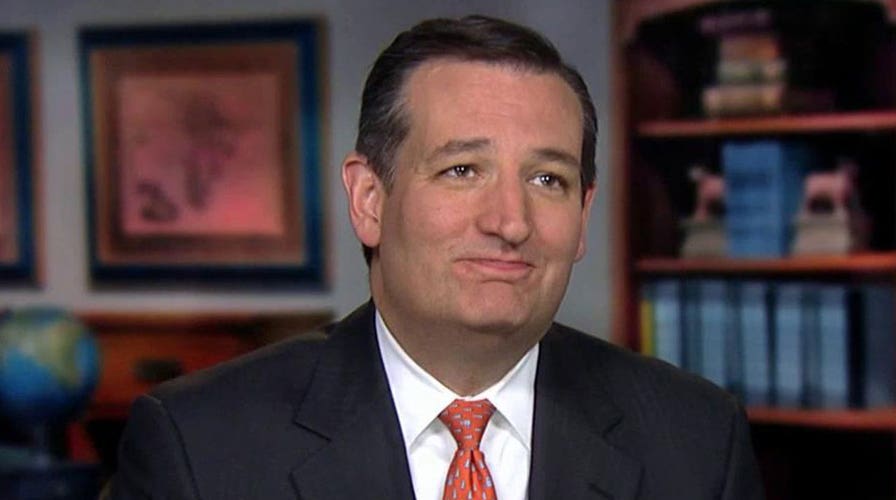What makes Ted Cruz tick?
Why the presidential candidate's estrangement from the Senate may be an advantage; Doug McKelway takes a closer look on 'Special Report'
On April Fools day last year, Texas Senator Ted Cruz rolled up his sleeve to reveal a tattoo of Winston Churchill. It turned out to be temporary. But the iconic British prime minister's style, intellect, and philosophy are permanently tattooed in Cruz's mind. "Never, ever, ever, ever, ever, ever give in, " he told this reporter Wednesday, two days before his visit to Iowa and a blitz of campaign appearances.
Now in fourth place behind Donald Trump, Ben Carson and Marco Rubio in the Real Clear Politics average of polls in Iowa, the conservative firebrand is plotting a Churchillian come-uppance, not just in Iowa, but in three other early voting states - New Hampshire, South Carolina and Nevada.
"We're the only campaign on the Republican side that has county chairmen in all 171 counties in those first four states. And then we've got an incredible grassroots leadership team, all throughout the March 1st states," Cruz told Fox News.
Some analysts believe Cruz's focus on the southern March 1 primaries might just work. Longtime political analyst Michael Barone cites the ratings from the first GOP debate as a possible sign that disaffected voters are looking for an alternative to GOP moderates of the past.
"The fact that 23 or 24 million people watched the first Republican debate versus 13 million for a Democratic debate suggests there’s a market that Ted Cruz hopes to speak to,to connect with," says Barone.
Cruz believes that a turn toward the center of American politics is doomed to failure, a kind of Democrat-lite. "Recent elections have shown every time we do that, we lose," he says. "If we do it again, the millions of conservatives who stayed home in 2012 will stay home in 2016. And Hillary Clinton becomes the next president. I believe the way we win, is we follow the model of Ronald Reagan. Ronald Reagan didn't run to the middle," Cruz says.
To recapture that Reagan coalition, Cruz has embarked on a carefully calculated path. He launched his campaign at Liberty University, a stronghold of southern social conservatism. But he's also courted Libertarians with a powerful states' rights message, and he lies in wait to win over so-called "Trumpkins," the Donald Trump followers whom many other GOP candidates have alienated.
"I like and respect Donald, we have some policy differences. I'm glad he's in the race and I'll tell you, I think Donald's running has immensely been beneficial to our campaign and the reason is simple. Donald has helped frame the central question of this primary as who will stand up to Washington," he said.
Cruz has liabilities. Liberal Harvard Law Professor Alan Dershowitz described his onetime law student Cruz as "off the charts brilliant" in an interview with the Philadelphia Inquirer.High praise... but it may not translate well for blue collar Republicans and independents wary of Ivy League elitism.
Cruz has also alienated Senate colleagues and his party's leaders.He and Senator Mike Lee, R-Utah, once held up passage of a $1.1 trillion spending bill, extending the Senate's session into a late December 2014 weekend. Majority Leader Harry Reid used that time to confirm several of President Obama's appointees.
The Washington Times editorialized, "Mr. Cruz gave Harry Reid a last chance to confirm dozens of President Obama's appointees just when the 113th Congress was about to be shipped off to the graveyard...He couldn't wait for the cavalry to arrive with guns blazing in January."
Barone observes, "If the Senate had a vote to expel one of its members like the old TV reality shows, I think Ted Cruz would be the first one out the door."
But that may not matter to millions of potential voters who’ve stayed home on past election days, disgusted with Washington politics as usual. Cruz's estrangement from the Senate may not be a liability, but an advantage.





